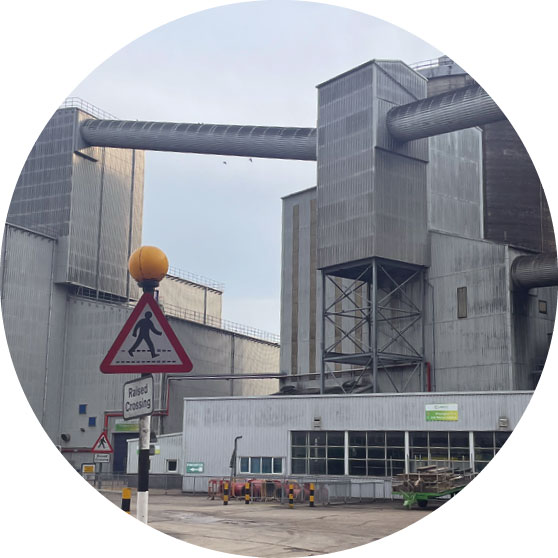MEASURING PERFORMANCE
While there are a host of day-to-day activities where the FM team proves its’ mettle, for instance in tackling spillages, which in a manufacturing setting can halt production, leading to escalating costs, data analysis has become a key way of measuring performance.
Explains Thomson: “We’ve gone down a data route and the data we produce is absolutely essential in helping determine how our customer sees us because we’re giving them full transparency across what we do, where we doing it and why. It costs in everything being done, giving them access to a never seen level of information.”
 Developed by EMCOR UK’s Senior Business Analyst Jo Petch, the system uses a combination of software, from Fusion Smartsheet to Power BI, and using a ‘clever bit of coding’ enables operatives to record every process, which is then translated into a full report on the condition of all areas of the site. For example, the scaffold manager carries out a scaffold check once a week on every scaffold. By automating this he records the condition online and by pressing a button creates a dashboard which shows which new scaffold has been put up, who created it, and whether there are any defects. So far, 18 operational dashboards have been created that provide data and insights into whole swaths of the sites.
Developed by EMCOR UK’s Senior Business Analyst Jo Petch, the system uses a combination of software, from Fusion Smartsheet to Power BI, and using a ‘clever bit of coding’ enables operatives to record every process, which is then translated into a full report on the condition of all areas of the site. For example, the scaffold manager carries out a scaffold check once a week on every scaffold. By automating this he records the condition online and by pressing a button creates a dashboard which shows which new scaffold has been put up, who created it, and whether there are any defects. So far, 18 operational dashboards have been created that provide data and insights into whole swaths of the sites.
Says Thomson: “All that information is there for the customer to see, who then doesn’t have to chase us up to check on it. In the longer term we’re planning to go virtually paperless by automating as much of these processes as possible.”
Fisher from British Sugar agrees with the usefulness of this approach: “We are a data rich business but you need clarity in that data so as to create insights to determine what it is actually telling you. We’ve gone on a big journey with that and the FM team has done this in parallel. For example, they will capture where we’re getting a number of spills, and that data will then let us put in an improvement procedure to prevent that happening in the future. This directly affects their productivity and raises factory standards.”
With the contract coming up for renewal within the next 18 months, Thomson reports having some really positive discussions on a contract extension and says going on ‘a data quest’ is helping both parties make this huge decision, especially with the current incumbents so embedded into the production processes.
As he concludes: “This kind of contract requires very specific FM people working within a manufacturing scenario because it’s so different. I’ve seen how commercial offices are run by FM, and this is a whole new ballgame, it feels so much more important.”




